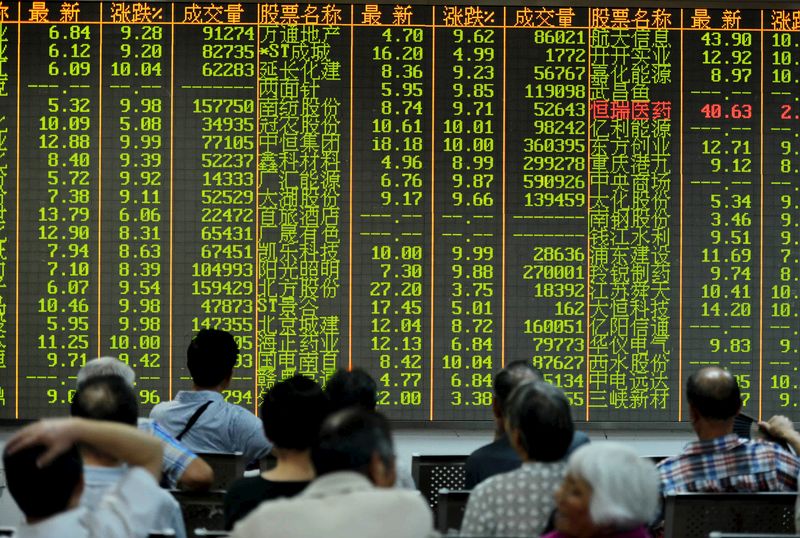SHANGHAI (Reuters) - China's index-tracking mutual funds have the potential to jump 10-fold to 6 trillion yuan ($857.29 billion) in assets over the next decade as investors are more likely to place money with them than rival stock-pickers who struggle to beat the market, veteran portfolio manager David Xu said.
Xu, the head of indexing and quantitative investment at Hua An Fund Management Co., said that growth in passive funds was being driven by the participation of more mature investors, as well as a rotation of Chinese money out of the stagnant real estate market and lower-yielding wealth management products (WMPs).
"Efficiency of China's market is rapidly rising," Xu, who manages over $5 billion worth of investment in several index funds, said in an interview as part of the Reuters 2020 Investment Outlook Summit.
He estimates that only two to three out of 10 active fund managers in China have beaten the benchmark CSI300 Total Return Index , and the odds will shrink further as the market become more efficient.
Once viewed by some investors as a casino, China's stock market is witnessing increasing participation by foreign and domestic institutional investors, whose intensive drilling into companies' fundamentals makes it harder for stock-picking fund managers to identify opportunities that others may have missed.
Burned by the 2015/16 market crash, retail investors are shunning individual stocks, and switching to index-trackers.
"They're avoiding the risks of individual stocks, instead turning to index investment," said Xu, whose ChiNext 50 ETF has seen a 27-fold surge in assets since end-2017 to about 6 billion yuan. Xu also manages Hua An's flagship SSE180 ETF (SS:510180) and Asia's biggest gold ETF (SS:518880).
Equity exchange-traded funds (ETFs) - the dominant form of index funds in China - have nearly tripled since the start of 2017, exceeding 500 billion yuan ($71.44 billion), according to fund consultancy Z-Ben Advisors. That contrasts with a 7% contraction in active equity and balanced funds during the period.
Although index funds in China have seen their share of the country's mutual fund industry rise to 11.7% from less than 9% two years ago, the growth potential remains huge. In the United States, index funds have grabbed half of the fund market.
Fearful of missing out an expected boom, Chinese asset managers are rushing to launch new ETFs. Global players including Vanguard and BlackRock (NYSE:BLK) are also eyeing this segment of the China market.
Xu said that fiercer competition will inevitably lead to price wars, and innovations.
Having already launched ETFs tracking German and Japanese indexes to faciliate offshore investment, Hua An plans to launch an ETF that invests in the French market, Xu said.
"China is accelerating its opening-up. That creates new growth opportunities for ETFs."
